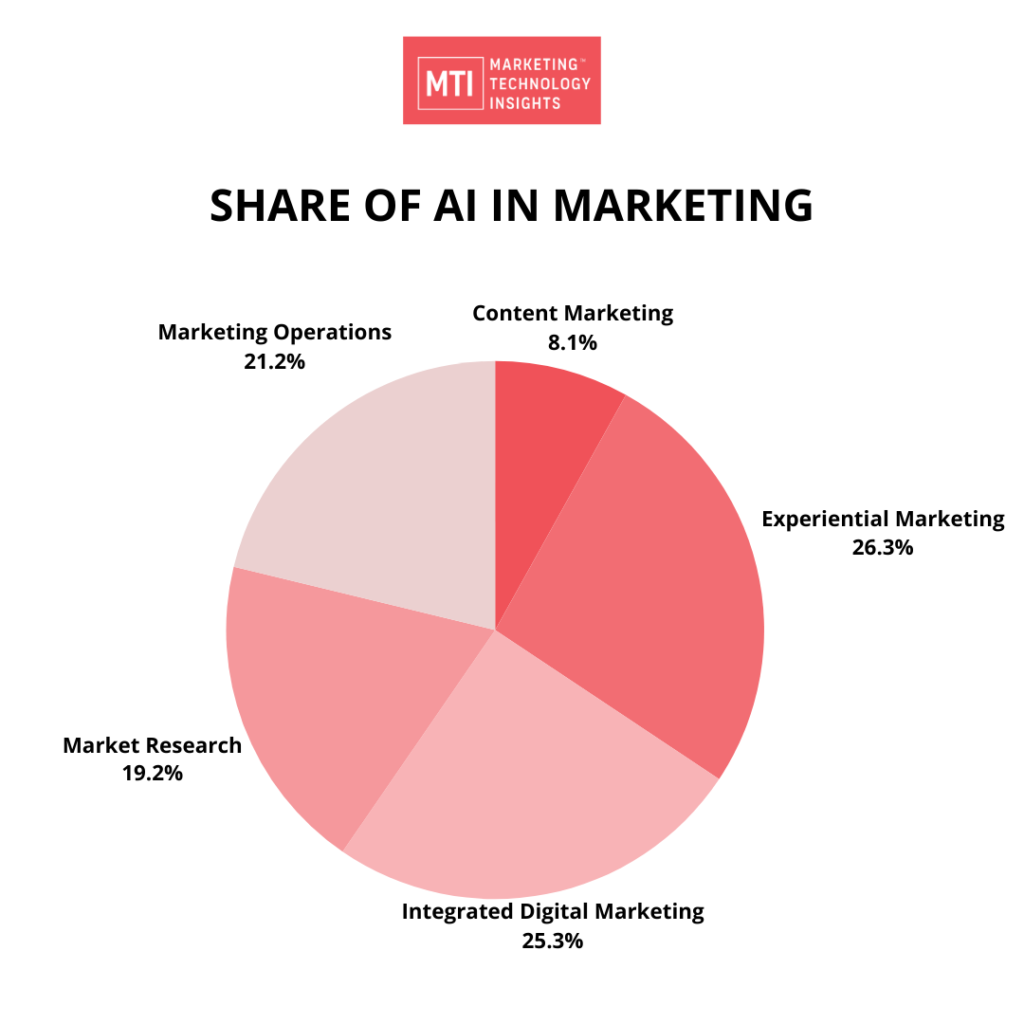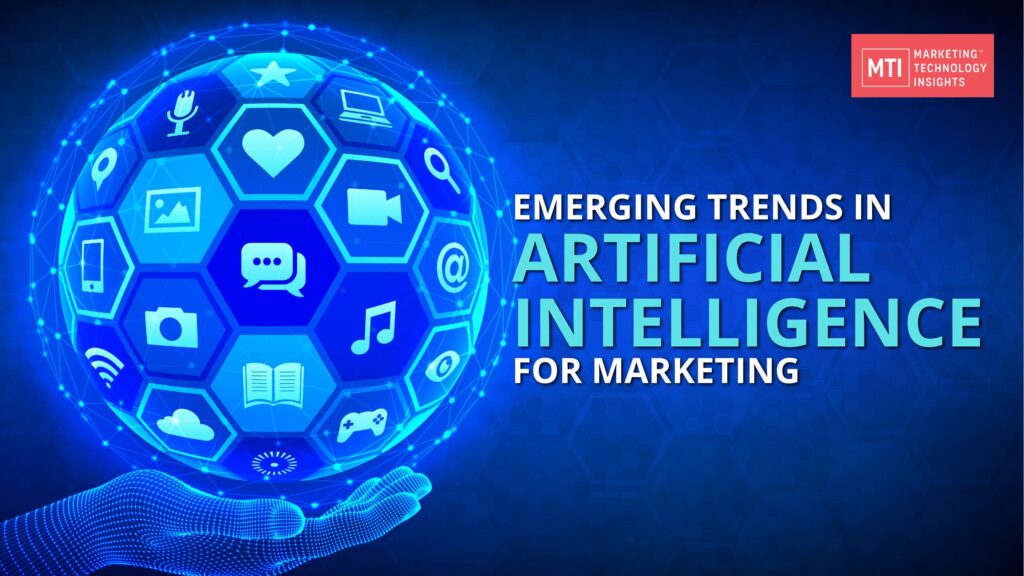Artificial intelligence for marketing has become a pop culture phenomenon. A marketing organization without a roadmap for AI investments will be relegated to the Dark Ages, and eventually vanish from the scenario. From laggards to extinct — isn’t it a very swift demolition? OK, so we know how AI will automate 90% of marketing tasks, and why in the next 18 months, 40% of global business leaders are expected to increase their AI investments in customer-facing campaigns! But, have you ever evaluated how AI can quickly gobble up your job if you don’t speak the MarTech AI language that the leaders understand and trust?
When we discuss AI adoption in the industry, we can easily identify three categories of marketing technology users. These are:
Martech leaders: The community of top-notch marketing technology experts with a strong IT foundation at departmental and organizational levels.
Martech laggards: The community of martech users who understand the role of new-age capabilities such as generative AI and LLMs but have failed to speed up their operational efficiencies using technology.
Martech failures: Martech users with little or no knowledge or talent management strategy to adapt to the AI landscape disrupting the industry.
Martech leaders, laggards, and failures — each share the same problem with IT integrations, data privacy, and compliance. However, it is the range of AI applications within their martech stacks that get the ‘leaders’ across the finishing line in most cases. And, this AI expertise makes them invincible… The current marketing landscape is breaking the shackles of conventional Martech stacks to embrace headless integrations. Powered by AI, marketing technology platforms are undergoing a significant transformation, which martech leaders love to experiment with. These intelligent tools offer unprecedented opportunities to enhance customer experiences, optimize campaigns, and revolutionize brand experiences and connectivity. As a marketing professional, staying abreast of these emerging trends is crucial for success in the competitive landscape.
Here’s a detailed blog on the role of artificial intelligence in marketing.
The Rise of AI-Powered Chatbots
Chatbots powered by AI are rapidly transforming customer interactions and support. Gone are the days of frustrating automated menus; these intelligent bots can hold natural conversations, answer complex queries, and even provide personalized recommendations. A recent study forecasts that the global market for chatbots will reach a staggering $14.4 billion by 2026.
Beyond efficiency, AI chatbots offer real-time engagement and personalized experiences. They can adapt their responses based on user behavior, recommend relevant products, and even schedule appointments, all while maintaining a friendly and helpful tone. Brands like Sephora and H&M have successfully implemented AI chatbots, improving the customer satisfaction score and up-selling conversions.
Predictive Analytics for Targeted Marketing
Marketing is no longer a game of chances, but intelligent data-powered decision-making. Thanks to the power of predictive analytics. AI algorithms can analyze vast disparate customer data, including purchase history, demographics, and online behavior, to predict future preferences and behavior. This empowers marketers to deliver precisely targeted campaigns, maximizing the return on investment (ROI).
Industries like e-commerce and travel have embraced predictive analytics with impressive results. Amazon, for instance, leverages AI to personalize product recommendations for each user, significantly boosting their purchase rates.

AI-Driven Content Creation and Personalization
The age of generic marketing materials is fading away. AI-powered content creation tools harness natural language processing (NLP) to generate personalized content in various formats, from blog posts and social media captions to product descriptions and email marketing campaigns. This technology saves marketers valuable time and resources while ensuring the content resonates with individual audience segments.
Imagine tailoring website content to each visitor based on their browsing history or crafting personalized email newsletters that address specific customer needs. These personalized experiences fostered by AI algorithms can significantly impact user engagement and brand loyalty.
Voice Search Optimization and SEO
The way people search for information is drastically changing. Voice-activated devices like Amazon Alexa and Google Assistant are experiencing phenomenal growth, over 4.2 billion people are expected to use voice assistants by 2024. To stay competitive, marketers must optimize their content for voice search by using natural language and long-tail keywords that people tend to use when speaking.
Optimizing for voice search requires adapting content to a conversational tone, incorporating frequently asked questions, and ensuring website speed for a smooth user experience. Implementing these strategies allows brands to capture a significant portion of the growing voice search market share.
Martech News: Introducing AI-amplified MarTech Suite: Infosys Aster
AI in Programmatic Advertising
Programmatic advertising, which involves the automated buying and selling of ad space, is becoming increasingly sophisticated with the integration of AI. AI algorithms provide real-time data analytics to optimize ad targeting, ensuring maximum reach and engagement with relevant audiences.
This technology facilitates real-time bidding on ad placements, ensuring the most effective and cost-efficient allocation of advertising budgets. Additionally, AI can segment audiences with unprecedented granularity, allowing for hyper-targeted campaigns that resonate more effectively with specific customer profiles.
Ethical Considerations in AI Marketing
While AI offers immense potential in marketing, it’s crucial to address ethical concerns. Data privacy is paramount to gaining consumer’s trust. Marketers must ensure transparency in how customer data is collected, used, and stored, complying with all relevant regulations. Additionally, AI algorithms should be developed and implemented in a way that avoids bias and discrimination.
Building trust with consumers through transparency and ethical practices is essential for long-term success in the AI-powered marketing landscape. Companies must be accountable for the use of AI and strive to utilize this technology responsibly.
Future Outlook and Predictions
Experts predict that AI will continue to reshape the marketing landscape in the future.
Advancements in AI, such as machine learning and deep learning, will lead to even more intelligent and personalized marketing experiences. However, potential disruptions, such as the rise of “deepfakes” and concerns over data privacy should be carefully addressed to ensure responsible and ethical implementation of AI in marketing. After all, consumers trust brands that have a strong AI ethics framework which is monitored and audited regularly.
Here are some key recommendations for marketers to prepare for the future:
- Embrace continuous learning: The world of AI is constantly evolving. Stay updated on the latest trends, attend workshops and conferences, and invest in upskilling yourself and your team to stay ahead of the curve.
- Focus on the human element: While AI automates tasks and provides insights, human creativity, and emotional intelligence will remain crucial for building genuine customer engagement.
- Prioritize data governance: Develop robust data governance strategies to ensure responsible collection, usage, and storage of customer data, building trust and complying with regulations.
- Measure and adapt: Regularly evaluate the effectiveness of your AI-powered marketing initiatives and continuously adapt your strategies based on data and performance metrics.
Conclusion
The future of marketing is undoubtedly infused with AI and LLMs. By embracing these emerging trends and staying informed, marketers can unlock the immense potential of AI to create personalized experiences, optimize campaigns, and achieve superior results. The future is bright for brands that adopt a responsible and ethical approach to harnessing AI’s power in their marketing strategies.



